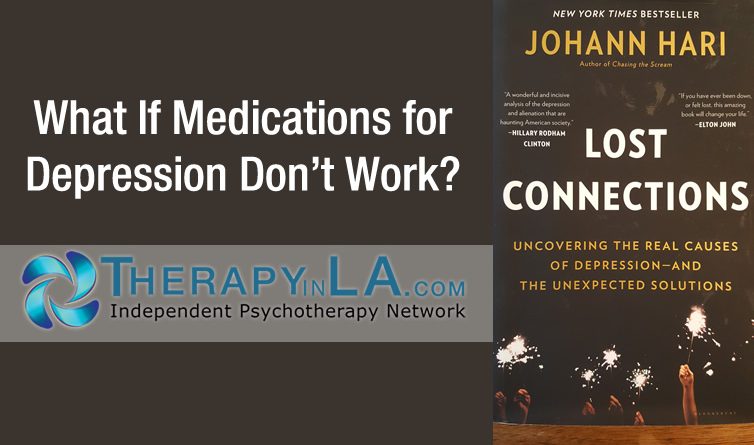What If Medications for Depression Don’t Work?
What If Medications for Depression Don’t Work?
The first line of treatment often recommended by MD’s for depression is Prozac, or another medication in that category (selective serotonin re-uptake inhibitors- SSRI). Similarly, a first response to anxiety is often Ativan, or another medication in that category (benzodiazepines – Benzo’s). What if that medication is not effective? And then other similar medications the physician may suggest are also not effective, and perhaps more troubling, create more side effects and discomforts than benefits?
If that’s the situation you’re facing, you are among those patients who are termed “treatment resistant”. Not that you’re deliberately resisting treatment at all, but that your brain chemistry and/or body chemistry happen to not respond positively to these medications. As much as 30%, or more, of all patients respond this way (or don’t respond positively) to these medications.
Since the unveiling of Prozac (1987), and its many successors, medication is often the first-line treatment of choice, either by the caregiver or by patients themselves, who understandably are seeking more immediate relief from what can be very difficult and longstanding symptoms. A new book explores exactly this scenario: Lost Connections: Uncovering the Real Causes of Depression – and the Unexpected Solutions, by Johann Hari (Bloomsbury Publishing, 2018).
Starting with his own compellingly told story, Mr. Hari details how folks who are not responsive to traditional medications for depression and/or anxiety suffer through years of little or no benefit with pervasive and difficult side effects. And, they are often told the problem is an “imbalance” in their brain chemistry, which serves to reinforce the notion they usually feel that there is “something wrong or broken” about themselves and their brains.
Mr. Hari outlines how the sources of depression are really a “lost connection” to “meaningful work, other people, meaningful values, childhood trauma, status and respect, the natural world, a hopeful future, genetic changes, and brain changes”. He does so with investigative research into the sources of such understandings, personal interviews with these researchers, and plentiful anecdotal information.
He then goes on to describe how “reconnection” with these lost sources is a powerful “anti-depressant” that provides relief, without the side effects and complications of ongoing use of powerful medications. Each reconnection is laid out in some detail in powerful anecdotes of actual experience by real patients.
It’s a compelling and very readable account by a top-notch investigative journalist, who has his own personal investment in sorting all of this out with clarity. Unfortunately, the “reconnections” are not as fully outlined as the “lost connections”. In the end, it supports the conclusion that much research has shown in recent years: that quality psychotherapy, in combination with medications, or without medication at all, can be an effective antidote to depression or anxiety. The “hitch” is that such benefits are not immediate in most instances, with some sustained effort on the part of a patient and a caring therapist required.
Alan M. Solomon, Ph.D. is a clinical psychologist in private practice in Torrance, CA. A member of the Independent Psychotherapy Network, he can be reached at 310 539-2772 or dralanms@gmail.com.
Copyright 2019 by Alan M. Solomon, Ph.D.

